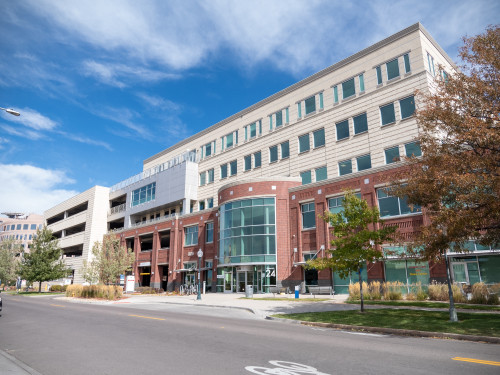
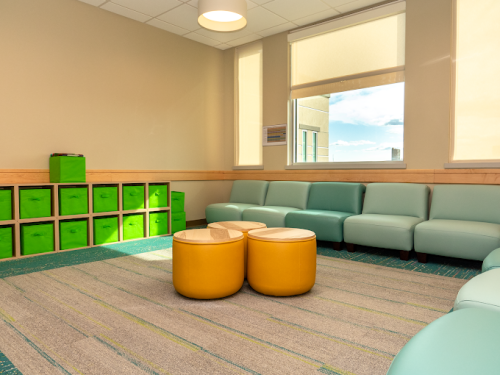
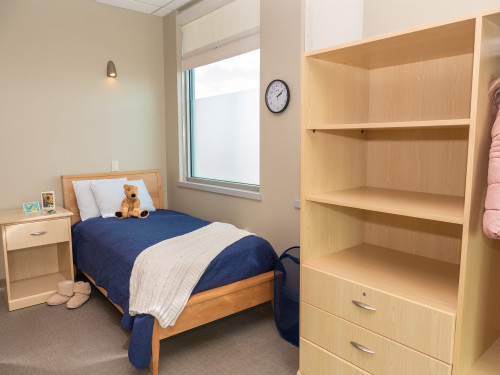
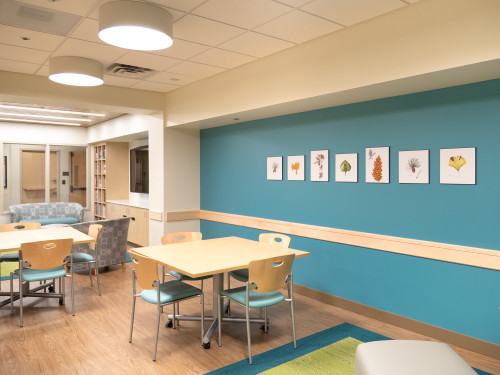





Eating Recovery Center Denver - Franklin St
This provider's information has been quality-checked by Recovery.com's Research Team for accuracy and completeness, including center verification through appropriate third-party organizations.
Treatment Focus
You can get treatment for eating disorders at this center, helping you navigate symptoms, build coping tools, and restore your physical health under expert care.
Primary Level of Care
Offering intensive care with 24/7 monitoring, residential treatment is typically 30 days and can cover multiple levels of care. Length can range from 14 to 90 days typically.
Treatment Focus
You can get treatment for eating disorders at this center, helping you navigate symptoms, build coping tools, and restore your physical health under expert care.
Primary Level of Care
Offering intensive care with 24/7 monitoring, residential treatment is typically 30 days and can cover multiple levels of care. Length can range from 14 to 90 days typically.
Provider's Policy
We are in-network with most major commercial insurance providers. We do not currently accept Medicaid or Medicare. To ensure you can pursue recovery, our dedicated team will work on your behalf by acting as a liaison with your insurance provider, answering your questions, and providing guidance and support every step of the way.
Eating Recovery Center Denver - Franklin St
Eating Recovery Center Denver - Franklin St
About Eating Recovery Center Denver - Franklin St
ERC Denver - Franklin St.’s residential program lights the path to recovery from eating disorders for medically stable children and adolescents of all genders. Clients receive 24-hour support—including continued observation and daytime medical and psychiatric supervision—from a team of experts who specialize in eating disorders and other co-occurring mental health conditions. Through personalized plans that include therapy, education, medical support, and family involvement, ERC helps clients achieve optimal physical and mental health.
Develop a Peaceful Relationship with Food
ERC helps clients find peace using both evidence-based therapies and supportive, structured meal planning. Individual, group, and family therapy sessions give clients the chance to explore what matters most to them, build coping skills, and gain insight from peers who share their struggles. Meals play a crucial role: with the support of registered dietitians, clients learn to approach food in a way that transforms it from a source of fear into a pathway toward lasting recovery.
Feel Comfortable in a Calm Atmosphere
At ERC’s flagship location, everything from the hanging art to the paint colors to the spa bathrooms was chosen by current and former clients. Spaces that are most challenging, such as bathrooms and dining spaces, have been renovated and feature quieter flooring, noise reduction, and outdoor-themed, sensory-nurturing natural lighting. Clients stay in cozy bedrooms they can personalize with items from home, and a state-of-the-art teaching kitchen provides hands-on experience with meal planning and emotional regulation.
Continue Outpatient Care Just Steps Away
With day treatment and intensive outpatient programs also on site, ERC’s step-down model of care provides convenient support at every phase of recovery. Their day programs run 5–7 days a week and give time to practice skills in real life. For added flexibility, intensive outpatient (IOP) care is offered 3–4 times a week, allowing clients to continue school, work, or family life while receiving therapy, nutritional counseling, and supported meals.

Highlights from the Center
Highlights
These highlights are provided by and paid for by the center.
Certified Professionals
Adolescents
Accredited
Eating Disorders Program
Center Overview
Treatment Focus
You can get treatment for eating disorders at this center, helping you navigate symptoms, build coping tools, and restore your physical health under expert care.
Joint Commission Accredited
The Joint Commission accreditation is a voluntary, objective process that evaluates and accredits healthcare organizations (like treatment centers) based on performance standards designed to improve quality and safety for patients. To be accredited means the treatment center has been found to meet the Commission's standards for quality and safety in patient care.

Eating Recovery Center Denver - Franklin St
Insurance Accepted
Cash Pay Rates
Estimated Cash Pay Rate
Center pricing can vary based on program and length of stay. Contact the center for more information. Recovery.com strives for price transparency so you can make an informed decision.
More Center Locations
Recovery.com Verified Listing
Recovery.com verified that the name, location, contact information and license to operate for this treatment provider are valid and up-to-date.

Joint Commission Accredited

Licensed by Illinois
Recovery.com is an independent, third-party mental health resource. Verification does not imply endorsement and does not guarantee the quality of treatment services.
Meet your care team
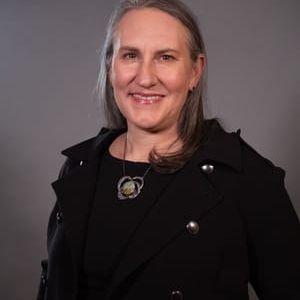
Elizabeth Wassenaar
Regional Medical Director
MS, MD, DFAPA, CEDS-C

Keely Flack
Assistant Nursing Director
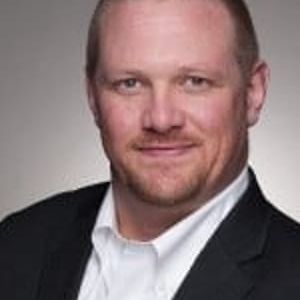
Adam Marion
Regional Vice President
LCSW
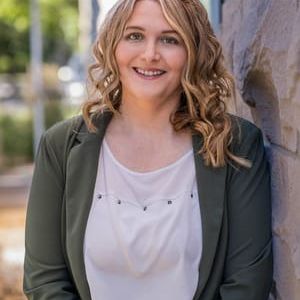
Heather VanHooser
Chief Nursing Officer
MBA, MSN, RN


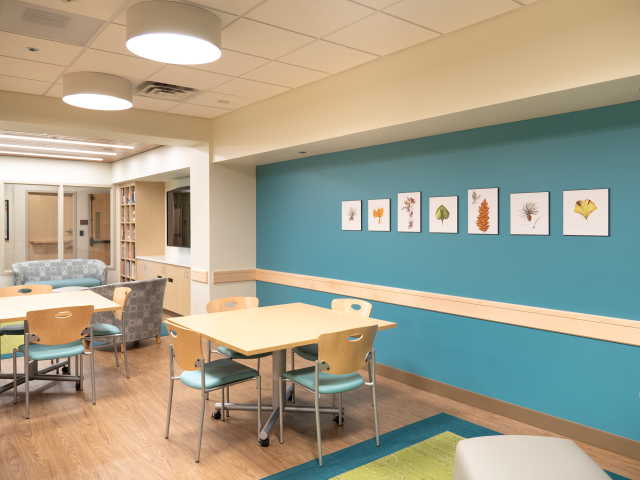
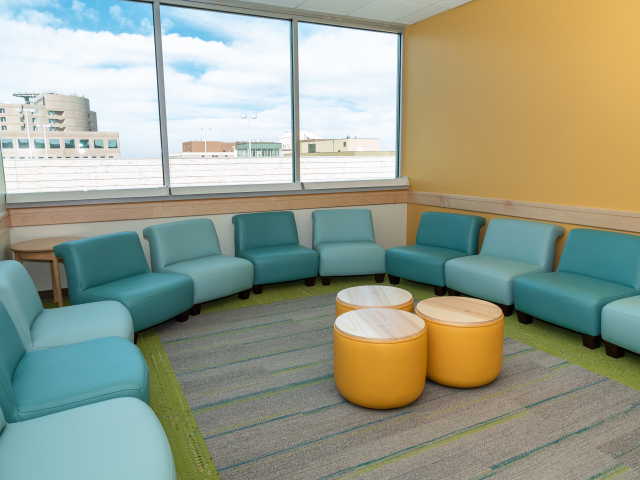
Your Care Options
Specializations
Family Therapy
Family therapy addresses group dynamics within a family system, with a focus on improving communication and interrupting unhealthy relationship patterns.
Co-Occurring Disorders
A person with multiple mental health diagnoses, such as addiction and depression, has co-occurring disorders also called dual diagnosis.
Adolescents
Teens receive the treatment they need for mental health disorders and addiction, with the added support of educational and vocational services.
Children
Treatment for children incorporates the psychiatric care they need and education, often led by on-site teachers to keep children on track with school.
Nutrition Counseling
Nutritious food helps patients heal from within, setting them up for mental and bodily wellness as they learn about healthy eating.
Eating Disorders
An eating disorder is a long-term pattern of unhealthy behavior relating to food. Most people with eating disorders have a distorted self-image.
Family Involvement
Providers involve family in the treatment of their loved one through family therapy, visits, or both–because addiction is a family disease.
Who We Treat
Adolescents
Teens receive the treatment they need for mental health disorders and addiction, with the added support of educational and vocational services.
Children
Treatment for children incorporates the psychiatric care they need and education, often led by on-site teachers to keep children on track with school.
Treatment Services
Residential
In a residential rehab program, patients live onsite, with access to daily treatment and 24-hour care. An average stay is 30-90 days.
Day Treatment
In a PHP, patients live at home but follow an intensive schedule of treatment. Most programs require you to be on-site for about 40 hours per week.
Intensive Outpatient Program
In an IOP, patients live at home or a sober living, but attend treatment typically 9-15 hours a week. Most programs include talk therapy, support groups, and other methods.
Intensive Inpatient
The highest level of care, medically managed intensive inpatient services provides 24-hour nursing and physician care.
Approaches
Evidence-Based
A combination of scientifically rooted therapies and treatments make up evidence-based care, defined by their measured and proven results.
Family Involvement
Providers involve family in the treatment of their loved one through family therapy, visits, or both–because addiction is a family disease.
Individual Treatment
Individual care meets the needs of each patient, using personalized treatment to provide them the most relevant care and greatest chance of success.
Therapies
1-on-1 Counseling
Patient and therapist meet 1-on-1 to work through difficult emotions and behavioral challenges in a personal, private setting.
Family Therapy
Family therapy addresses group dynamics within a family system, with a focus on improving communication and interrupting unhealthy relationship patterns.
Acceptance and Commitment Therapy (ACT)
This cognitive behavioral therapy teaches patients to accept challenging feelings and make the appropriate changes to reach personal goals.
Art Therapy
Visual art invites patients to examine the emotions within their work, focusing on the process of creativity and its gentle therapeutic power.
Nutrition Counseling
Nutritious food helps patients heal from within, setting them up for mental and bodily wellness as they learn about healthy eating.
Online Therapy
Patients can connect with a therapist via videochat, messaging, email, or phone. Remote therapy makes treatment more accessible.
Conditions We Treat
Eating Disorders
An eating disorder is a long-term pattern of unhealthy behavior relating to food. Most people with eating disorders have a distorted self-image.
Languages
Aftercare
Care Designed for Your Needs
Personal Amenities
Amenities
Special Considerations
Activities
Yoga
Yoga is both a physical and spiritual practice. It includes a flow of movement, breathing techniques, and meditation.

Learn More About the Center
Mental Note Podcast
Listen to episodes that highlight both the work and the beauty of recovery.
10 Tips for Mealtime Support
Read advice on how to best support a loved one’s recovery during mealtimes.
9 Tips for Eating Out at Restaurants While in Recovery
Find helpful strategies to use when eating out with a loved one who has an eating disorder.
ERC Pathlight in the News
Follow the latest eating disorder coverage featuring clinicians from ERC.
We love hearing about your treatment experience
Help individuals and families seeking treatment by sharing your first-hand experience with this treatment provider. Review Guidelines.








